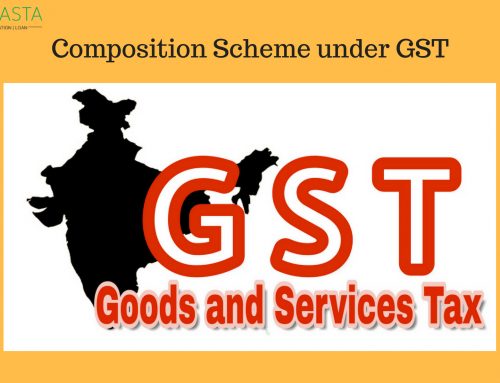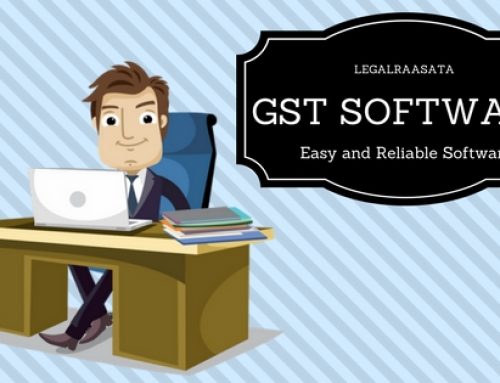GST impact on startups
GST impact on startups is more positive for better growth of a business. In December 2014, the bill of Goods and Service Tax (GST) was introduced in Lok Sabha. GST is payable on the transaction value, which includes:
- Packaging cost
- commission, and
- All other expenses incurred for sale
It is a deemed benefit for all business in India and the tax is payable at the final point of consumption. It has two major components:
- The Central GST, and
- The State GST
It empowers both the government to legislate and administer their respective taxes.
GST impact on startup in different ways
GST makes India wake up to a completely new tax regime. However, business owners are still struggling to figure out the GST impact on their business. GST have a major impact on SMEs in comparison to the large business organization. GST online registration makes the business transactions to run more smoothly.
There are few ways which you should keep in mind especially if you are planning to start a business in future. Impact of GST on business can be of two kinds:
- The positive impact, and
- Negative Impact
The positive impact of GST on startups
The various positive impact of GST on startups are given below:
Reduce logistics cost
GST reduce logistics or transportation costs to a great extent by replacing CST and octroi. In the business of transportation when the goods are transferred inter-state then you have to pay octroi or entry taxes every time you enter into a state, these taxes are collected by individual states and usually, it leads to a wastage of time. Apart from octroi, the CST is levied on inter-state movement of goods. Also, the person who is transferring the goods or a truck driver have to furnish the CST document at the state border. This makes a huge cost and becomes the reason that many states do not supply the goods to another state.
Elimination of distinction between goods and services
According to the current tax regime, the Service Tax is applicable to services and Value Added Tax (VAT) is applicable to goods. Post GST makes a uniform tax will be levied on both goods and services which makes invoicing simpler and also it reduces the tax evasion.
Ease of doing business
GST makes a smooth flow of the business especially for startups also it reduces the paperwork and it is less time-consuming. Without GST a business has to get registered with numerous tax authorities where the different states have different procedure, regulations, and VAT rates and have to undergo with sales tax department of the state also this registration has to be done with all the states wherever the business has to carry out its operation. GST removes unnecessary transactions and process which took place in the course of the business transaction. It makes a single registration and less paperwork. It makes business owners focus on their businesses rather than complying with complicated tax laws.
Expansion of business
Due to the inter-state taxes and the complicated procedure usually, the small business restricts their business practice to the limited area, this limits their customer and growth of the business. GST not only removes the inter-state tax complications but also encourage the businessman to expand their business PAN India and increase their customer base in a vast area. It reduces the cost of supplying goods across the states.
Reduce tax burden
According to the current scenario, the business with the turnover, not more than 5 lakhs need not pay the VAT registration fee, under the GST bill this limit has been increasing up to 20 lakhs. It helps in reducing the tax burden on startups.
Negative impact of GST on startups
There are few negative impact of GST on startups which are given below:
Technological challenge
To deal with the online system may become a problem with the startups a lot of startups do not have the expertise to deal with the online system so they might need the help of intermediaries for the online registration process and this will increase the cost.
Loss to freelancers
If you are a freelancer or if you do not have a fixed place of business then you need to get registered yourself under the GST as a casual taxable person. For freelancers the limit of INR 20 lakhs is not applicable. You have to register with GST even if you do not run your business at any fixed place.
Problem in trade
A person will receive tax credit only if he has paid the tax as well as file the return even if any single suppliers in the entire supply chain does not file the GST return the next supplier in the chain have to file the vat of 18% and this gives an adverse especially on the small business industry. In order to prevent this problem you need to check the vendor rating.
Reverse charge mechanism
Reverse charge is a liability of a person who is purchasing the goods and services and there are different provision for a reverse charge under GST. A person need not to get registered if the turnover is not more than INR 20 lakhs. If a buyer needs to pay GST on his purchase than revere charge is applicable on the buyer if you are running your business with an unregistered dealer. If you are unregistered seller than you need to issue an invoice to your customer and this invoice has to be uploaded in the GST system.
Decrease in demand of goods
GST increase the cost of goods and service for the final consumer and this might reduce the demand for goods and services as there is a direct burden on the consumer.
How to do GST online registration
GST subsumes all taxes such as:
- Sales tax
- Service tax
- Excise duty, etc.
If your annual sales is not less than INR 20 lakhs then the registration under GST is required preliminary and if your sales in less than INR 20 lakhs then also it will be more preferable to get yourself registered with GST.
Procedure to complete GST online registration are given below:
- The first step is to log on to www.gst.gov.in
- Click on the service tab at the top of the page.
- Select new registration by clicking on registration.
- Fill the part-A of the form in which you have to fill the information related to your Permanent Account Number, address, phone number, state, name of a business etc.
- Upload the documents as requested, based on the kind of a business you are running.
- Fill the part-B of the form than you will receive an Application Reference Number through email or SMS.
- After completing the above procedure the GST officer will verify your application.
GST return and their due dates
Every person registered under GST, file your GST return online to furnish the details of sales and purchase with tax collected and paid. It is mandatory to pay the tax otherwise the return will be invalid.
Steps for filing online return
GST return is differ from business to business as it depend upon the nature of transaction and registration
- Provide the monthly details of outwork supplies in Form GSTR-1
- Provide monthly details of inward supplies in Form GSTR-2
- Provide monthly filing of return with payment of tax due in Form GSTR-3
- In Form GSTR-9 annual filing
Due dates based on the latest notification
- Quarterly return with annual turnover up to INR 1.5 crore
| Period | Due Dates |
| July to September | 10th January |
| October to December | 15th February |
| January to March | 30th April |
- Return for the turnover exceeding INR 1.5 crore
| Period | Due Dates |
| July to November | 10th January |
| December | 10th February |
| January | 10th March |
| February | 10th April |
| March | 10th May |



